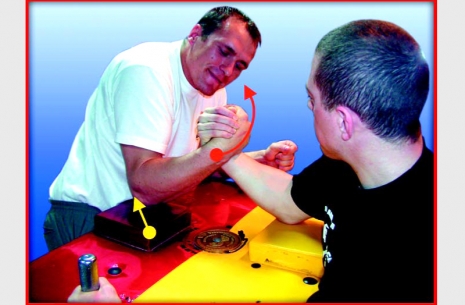
A well-rounded fighter should be technically prepared to force his actions on the opponent, to react swiftly and chooce a technique that would earn him a win. This is what we call a counter.
A well-rounded fighter should be technically prepared to force his actions on the opponent, to react swiftly and chooce a technique that would earn him a win. This is what we call a counter. This is what we will speak about in this article. A counter is a planned transition from defense to offense, to success. This task may be difficult, and rely on our skill levels. A sparring partner can be of greatest help, when working on our technical side. An experienced partner can create oppurtunities to test out our ideas, and increase the difficulty of circumstances along witk our progress. In time, the conditions may get to the point where it fees like an actual bout at the table. In this way, by getting acquainted with the counter, a fighter can learn the elementals of armwrestling. Many attention should be sacrificed to technique, especially in order to work our key techniques, our “trademarks”. Trademarks vary and depend on our focus and time of training. They need to be worked on at least twice a week, without ignoring constant development of other aspects. Not adhering to these habits may have a negative outcome for a foghter. In training counter, the fighter should pay tme most attention to learning how to fight out of every position.
COUNTER 1
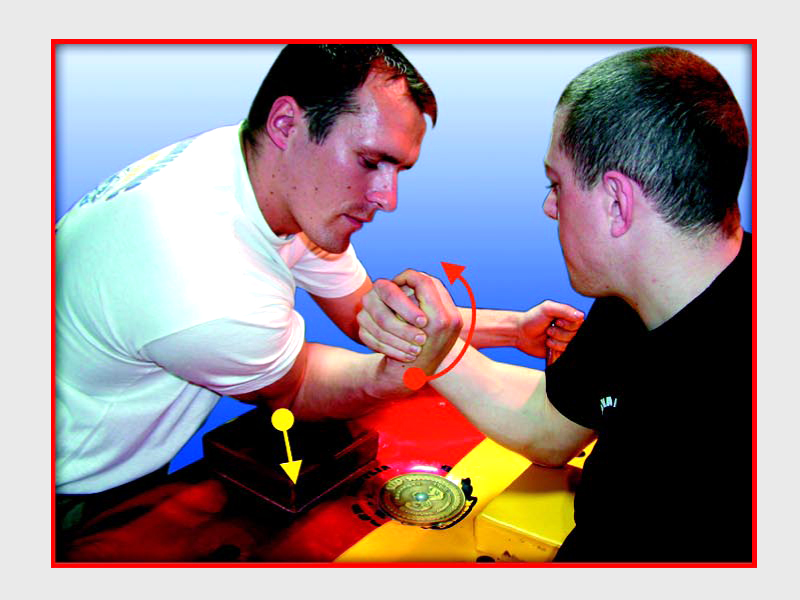 |
In starting phase, we wrap our palm towards our body, by bending our wrist to the maximum. Elbow is rested on the outside edge of pad. |
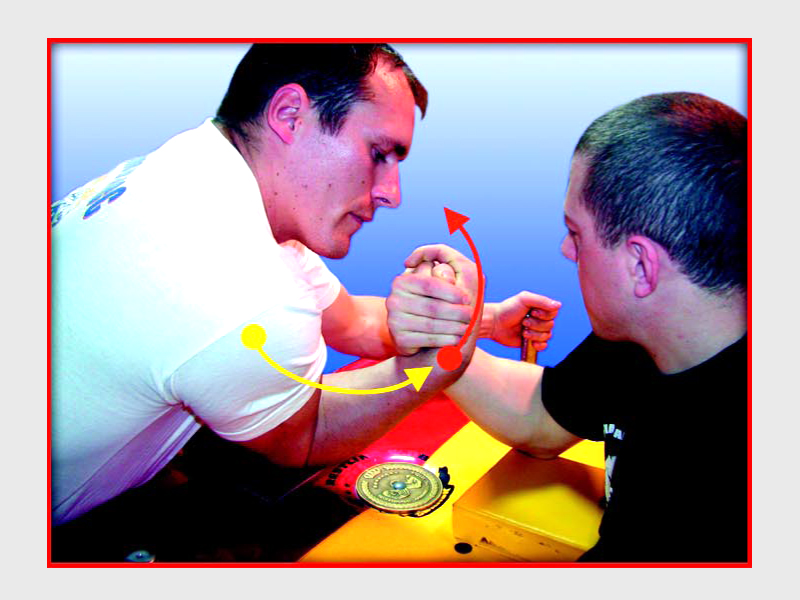 |
In phase two we make two moves at once – slide the elbow diagonally to the front of the pad, push our shoulder forward, reduce the angle between forearm and arm, and use the edge of our wrist to pressure the opponent's arm. |
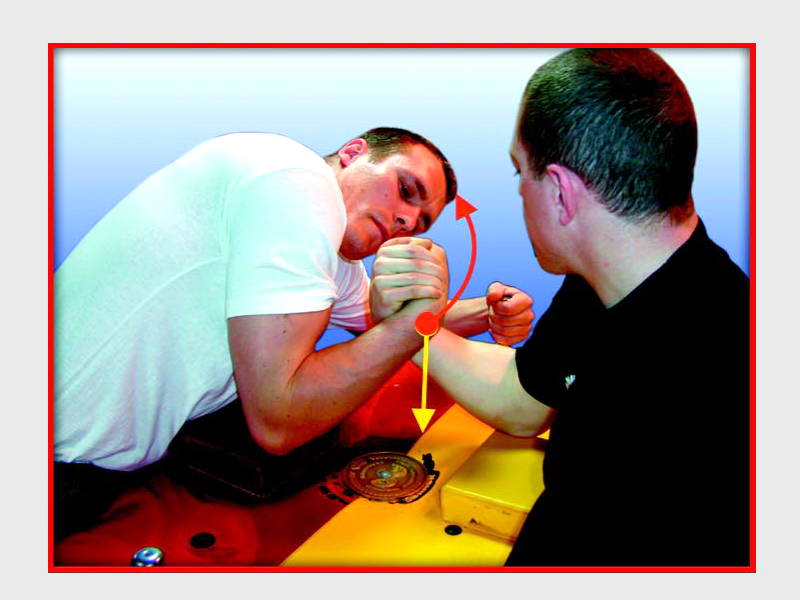 |
Using the edge of the wrist, we press our opponent's arm towards the pad. |
COUNTER 2
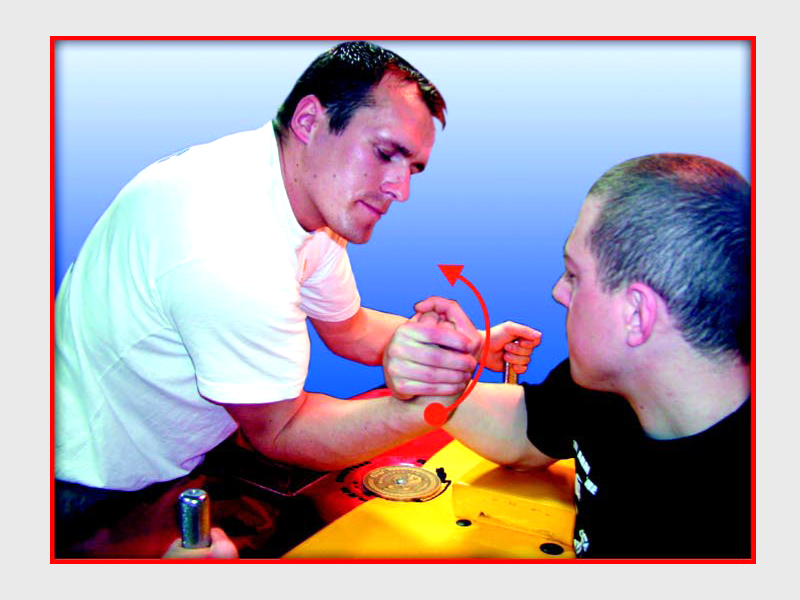 |
In phase one, wrap your palm towards yourself, by bending the wrist. Elbow is rested on the inside edge of the pad. |
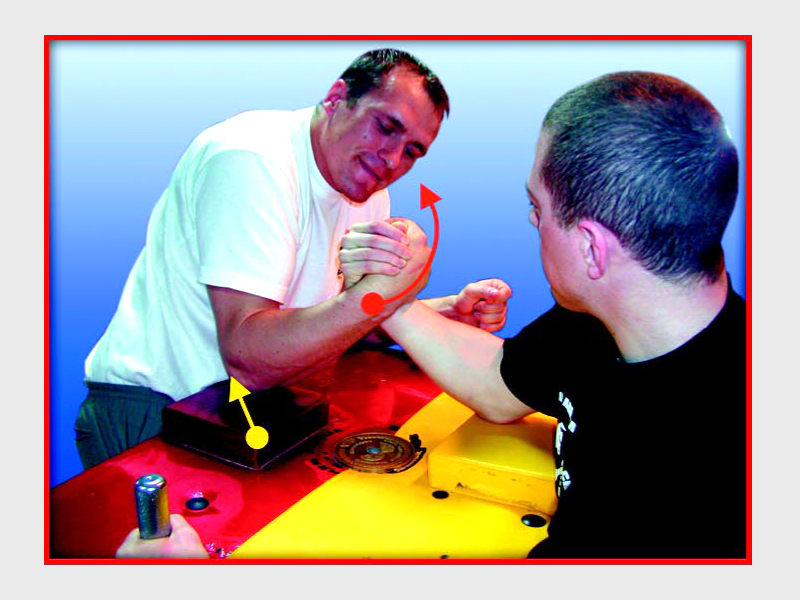 |
In phase two: draw elbow in diagonally, draw opponent's arm towards your body, so as to stretch his arm / forearm angle to the maximum. |
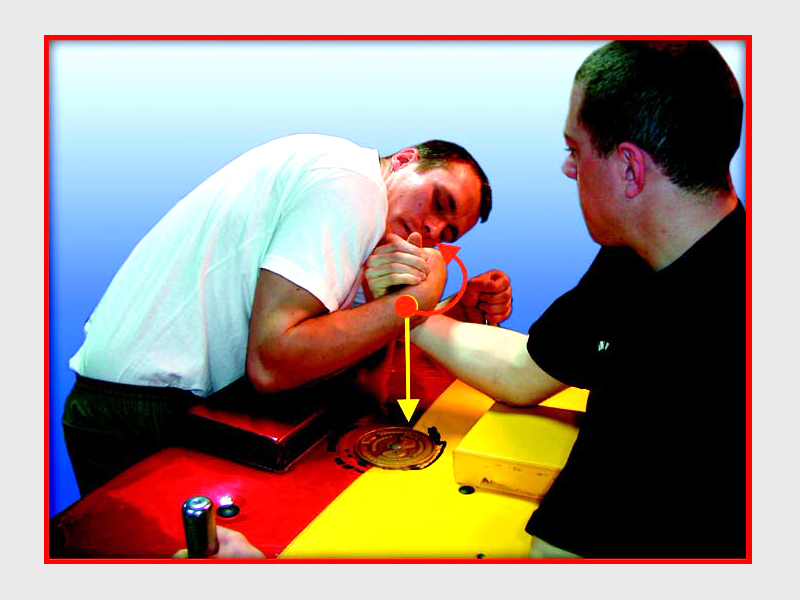 |
Using the edge of the wrist, we press our opponent's arm towards the pad. |
COUNTER 3
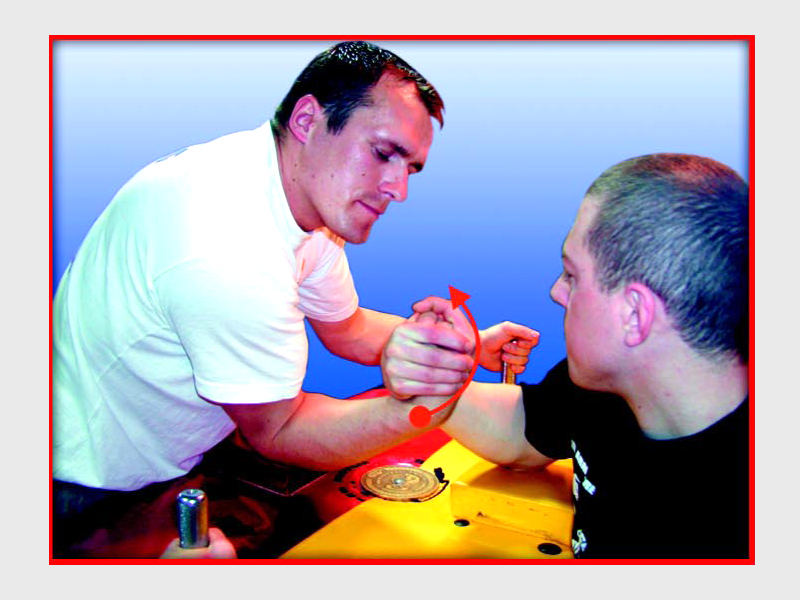 |
In phase one, wrap your palm towards yourself, by bending the wrist. Elbow is rested on the inside edge of the pad. |
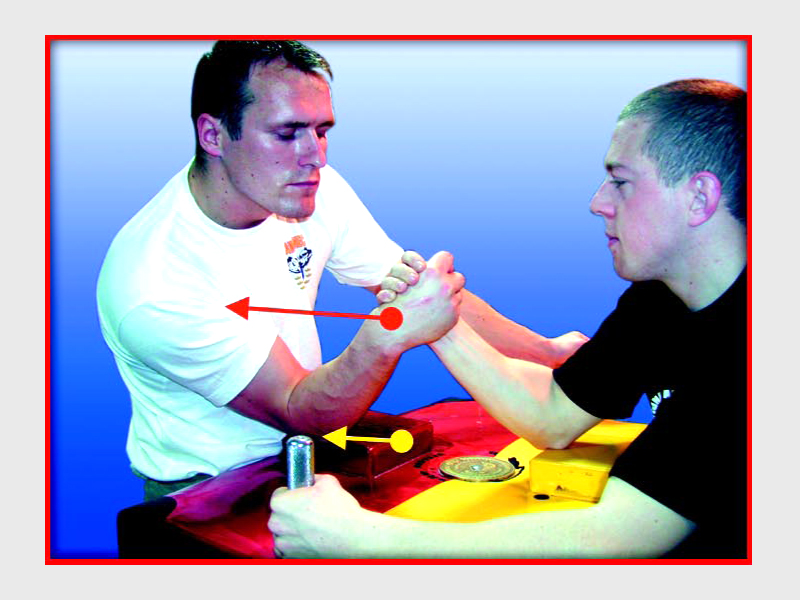 |
By rotating wrist outside, draw and unbend opponent's fingers. |
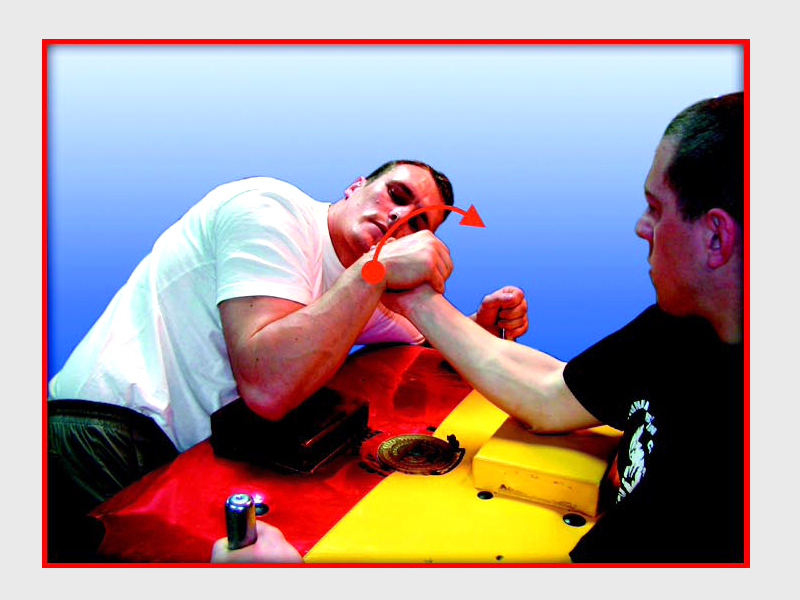 |
Using side pressure, pin the opponent's arm. |
COUNTER 4
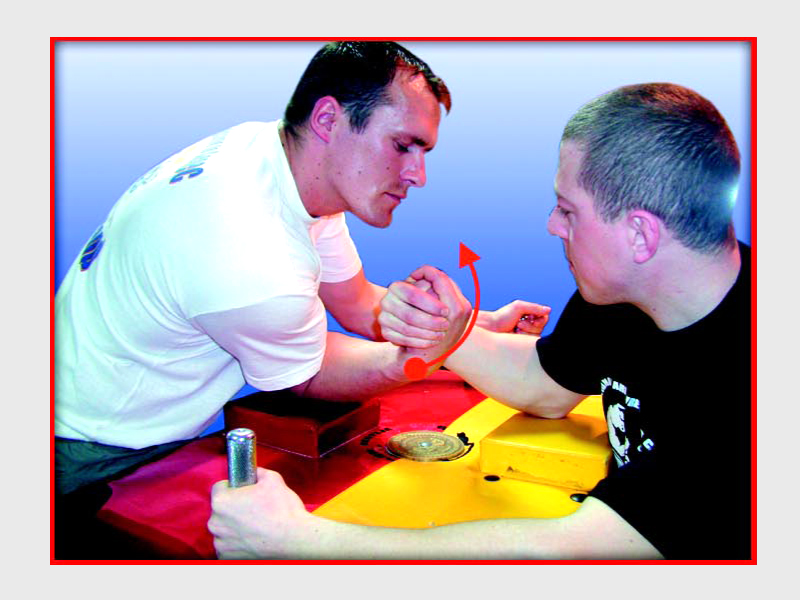 |
In phase one, wrap your palm towards yourself, by bending the wrist. Elbow is rested on the inside edge of the pad. |
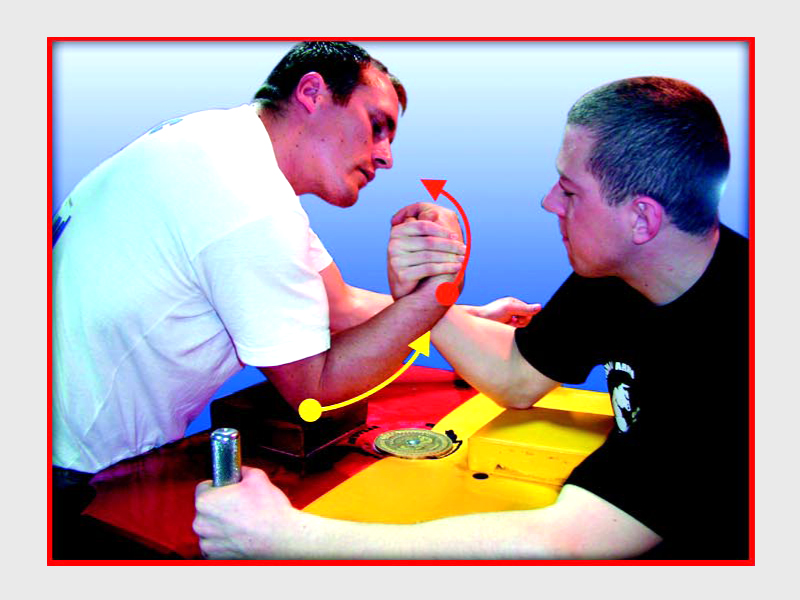 |
Push elbow forward, causing the whole grip to move upwards. |
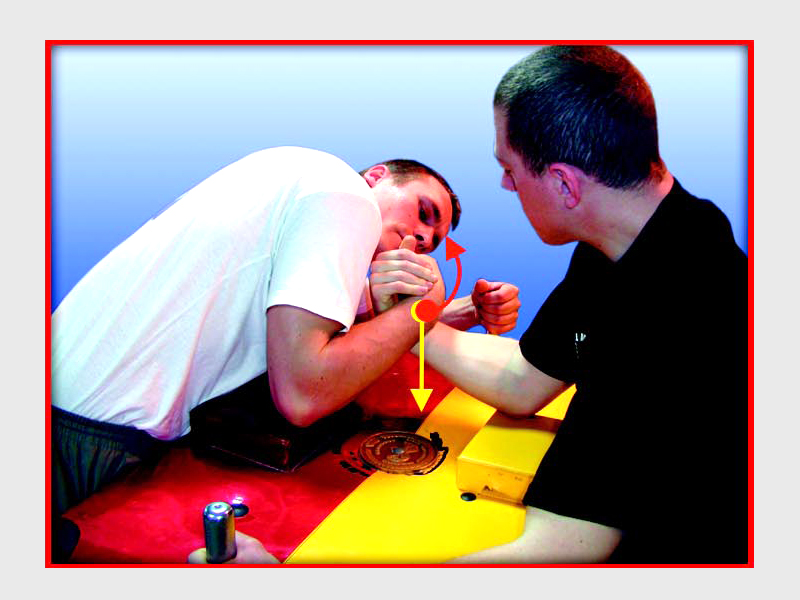 |
Using the edge of the wrist, we press our opponent's arm towards the pad. |
COUNTER 5
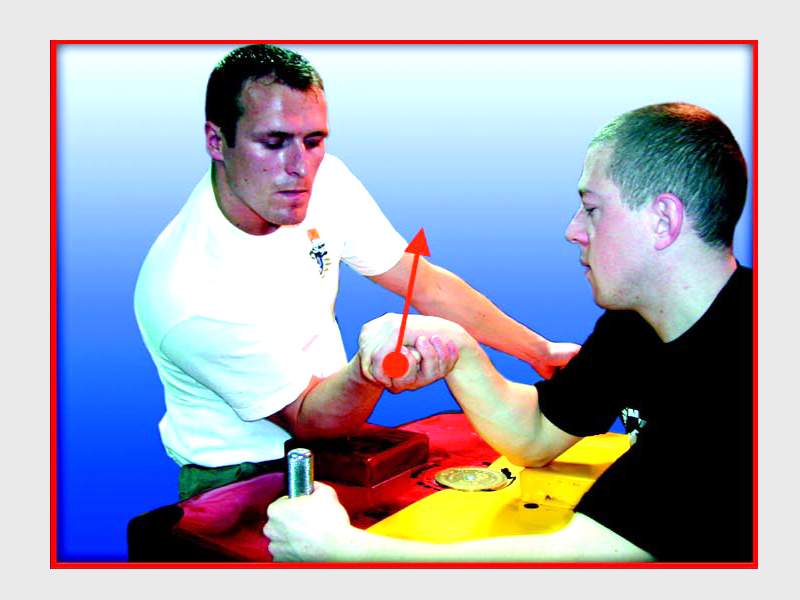 |
Due to the opponent's attack, your palm is unbent. In phase one, hold your opponent's pressure. |
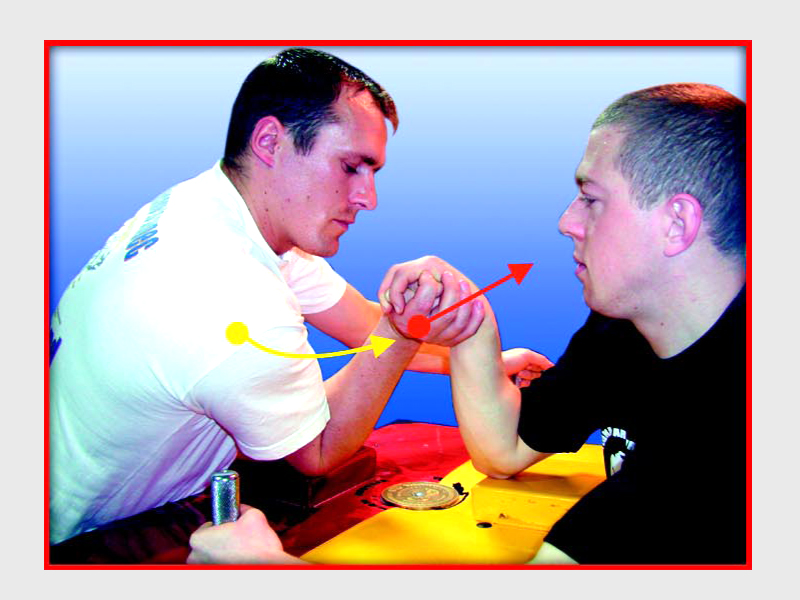 |
Then, push your shoulder forward, pressing on the opponent's arm. |
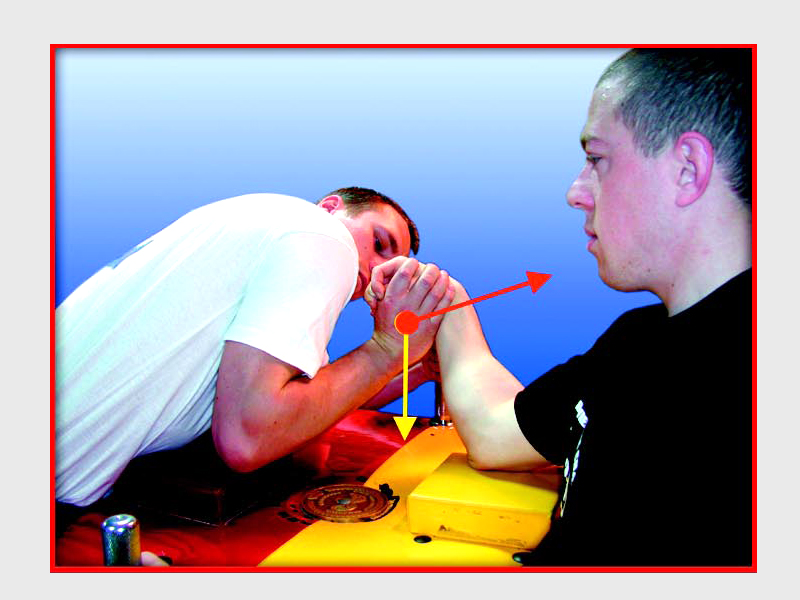 |
Then push and pressure the opponent's arm, until you pin them. |


